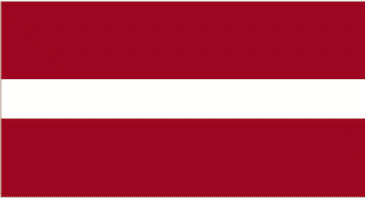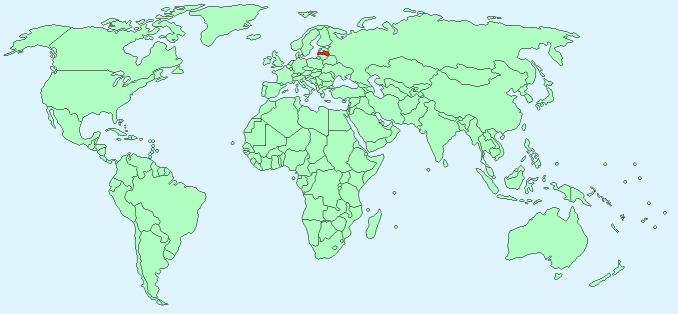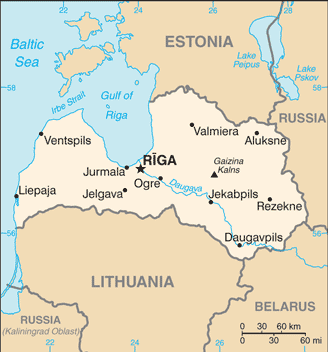Latvia


Continent – Europe
Region – Eastern Europe, European Union, Eurozone
Size – 64,589 km²
Geography – low lying plains with hills to the east
Language – Latvian (official), Russian,
Religion – Lutheran 19.6%, Orthodox 15.3%, other and none 65.1%
Monetary Unit – Euro
Natural Resources – peat, limestone, dolomite, amber, hydropower, timber, arable land
Agriculture – grain, rapeseed, potatoes, vegetables; pork, poultry, milk, eggs, fish
Industry – processed foods, processed wood products, textiles, processed metals, pharmaceuticals, railroad cars, synthetic fibers, electronics

Neighbouring Countries – Estonia, Russia, Belarus, Lithuania
Population – 2,165,165 (2014 estimate)
Population Growth Rate – -0.62%
Average Life Expectancy – 73.44
Capital City – Riga (703,260)
Highest Point – Gaizina Kalns (312m)
Longest River – Daugava (1,020 km total, 352km in Latvia)
Climate – maritime – cool winters – -5°C to 4°C and warm summers – 20°C to 25°C
Yearly Rainfall – 80 cm (approx)
Plant Life – Scots pine, Norway spruce, silver birch, downy birch, black alder, grey alder, aspen, common ash, pedunculate oak, willow, juniper, rowan, hazel, alder buckthorn, bird cherry
Animal Life – wild boar, Eurasian beaver,brown bear, roe deer, red deer, elk, wild boars, foxes, wolves, lynx
Bird Life – stock dove, black stork, pygmy owl, Tengmalm’s owl, middle spotted woodpecker, capercaillie, Ural owl, lesser spotted eagle, spotted eagle, red and black kite, eagle-owl, roller and green woodpecker.
Harvard Reference for this page:
Heather Y Wheeler. (2015). Latvia. Available: https://www.naturalhistoryonthenet.com/Facts_Figures/Country_Facts/latvia.htm. Last accessed Monday, July 18, 2016
Facts and Figures Pages
